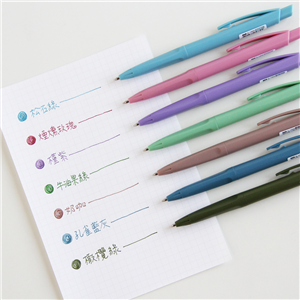章節試閱
cacao NO.02試閱
■Culture
陳界仁:溫馴,最不必要
Chen Chieh-Jen, “Tameness, the Least Necessary”
台灣當代藝術家陳界仁,他在作品展露國際之前,曾有8年時光停止創作。我問:「你這段沈潛時期都在做些什麼?」他笑答:「不是沈潛,是在發呆」。他用這8年讓自己閒下來,重新審視過往的成長經驗,思考因為問題“太簡單”而忘記的答案。他拾起身邊有限的媒材當創作武器,透過沈默的黑白影像、考驗耐性的緩移鏡頭,突破現代藝術路數,讓作品回歸生命價值,帶領觀者超越想像地,直視人的本質。
Chen Chieh-Jen, a contemporary Taiwanese artist, once stopped creating for eight years before his works were presented internationally. I asked him, “What were you doing during this period of latency?” He smiled and answered, “Not being latent, I was in a trance.” During these eight years, he allowed himself to do nothing but re-examine his past experiences of growing up. He thought of the answers which were forgotten because the questions were “too simple.” He picked up the limited media-materials around him as the weapons of creation. Through the silent black and white images and the slow moving shots that tested one’s patience, he broke the traditional ways of modern arts so that his works returned to the value of life and led the viewers to look right into the human nature, beyond their imagination.
冬天陽光曬暖了台北,走進陳界仁位於溫州街上的工作室,本以為將展開一場充滿社會學名詞的對話,親切的藝術家卻劈頭就說:「其實很簡單,我的作品就是關注人的狀態。」
一身黑衣,菸不離手,話語不停,陳界仁說自己是個焦慮的人。打從學生時代,他就不解為什麼學藝術需要反覆畫著西洋石膏像,被學校否定,他帶著困惑去圖書館透過閱讀尋求答案,他相信美感在自己心中,單一化只會讓創作力萎縮。畢業後,陳界仁曾在工廠工作,因此能體會工人、上班族鎮日消磨的疲累,他也曾與友人做過游擊行為藝術、舉辦地下展覽,衝撞當時的戒嚴體制。而8年的「發呆」時光則是在解嚴後開始,這段時期陳界仁回到成長的地方,重新認識成長環境中的眷村生活、加工廠、軍法局等空間意義,進而連結整個台灣社會的脈絡,回到根源思考未來。從經驗中尋找想法,便開啟了創作的能動性,恰巧朋友又熱心地出借電腦,陳界仁重拾創作,試圖建立另一套邏輯,就像他說:「改變現有思維模式,才能開創新的思想資源……而溫馴是最不必要的。」
從第一次看見錄像作品《淩遲考:一張歷史照片的迴音》,陳界仁即成為台灣藝術圈值得關注的名字。緩慢的黑白畫面,凌遲場景的再詮釋,藝術家翻轉視角帶我們主動回望殖民歷史,思考當代仍未結束的剝削狀態。其後作品《加工廠》、《八德》……到近年因申辦美簽遭無理拒絕的衍生作品《帝國邊界Ⅰ》,以及從父親遺物反思台灣長期遭受霸權支配的《帝國邊界Ⅱ—西方公司》,陳界仁持續以自己的詩學美感,適時適地運用身旁所能集結的資源,拍出那些曾經存在但視而不見,被追求進步論的人們所擱置、遺忘的切身問題,領著觀者穿越絕望、凝視現實。問他在不在意批評、不被接受?陳界仁說就算如此也是有意義的失敗,他只在乎連結的可能性,爭取那千分之一的觀眾,12年展覽舉辦至今,從不覺得能生存下去。
笑稱自我感覺良好的陳界仁,實則是個自我鞭策的藝術家,到現在仍會不斷修改作品,「這是對自己負責,把東西做到可能的極限……我們也是受別人啟蒙,自我積累,希望有一天換別人拿你過橋。」身為邊緣區域的藝術家,陳界仁說台灣從來就是在邊緣,但不管在哪裡都能有創造性。沒有架設網站,卻能讓作品在世界各地展出,就算不去美國了,也還是可以讓代理人為他發聲。
改變的那刻到來之前,從來就是需要點滴累積能量,與陳界仁對談的下午,心中像是立定了一把尺,也像曬了冬陽十分溫暖。他的作品看似緩慢陰鬱其實充滿希望,如同《淩遲考》最後那抹微笑,它困惑人們,卻激發想像。
The sun in winter warmed up the city, Taipei. When walking into Chen Chieh-Jen’s studio in Wenzhou Street, I thought it would be a dialogue full of sociological terms. However, this friendly artist began, “In fact, it is very simple. My works are mainly concerned about the states of human beings.”
Wearing black attire with a cigarette in hands and non-stop talking, Chen Chieh-Jen described himself as an anxious person. Since he was a student, he kept wondering why you ought to paint the Western plaster sculptures over and over again if you are learning about arts. He was denied by the school. With confusion, he went to the library to search for answers through reading. He believed that beauty is in one’s heart and singularizing will only shrink creativity. After graduation, Chen Chieh-Jen had once worked in the factory, so he could understand and feel how laborers and workers were worn out from daily tiredness. He had also done guerrilla performance art with his friends and organized the underground exhibitions, which were confronting with the martial law at that time. The eight years’ trance started after the lifting of the martial law. During this period, Chen Chieh-Jen went back to the place where he grew up. He re-encountered the meaning of space such as the villages of the military dependents, processing factories, and Military Court and Prison. Furthermore, he linked this to the entire Taiwan society as a context and then traced back to think of the future. He tried to find ideas from his experiences. This opened the initiative of creation. Coincidentally, his friend kindly lent him the computer so that Chen Chieh-Jen could restore his creation, trying to build another set of logics, just like he said, “To change the existing mode of thinking is the only way to explore resources of new ideas. Thus, tameness is the least necessary.”
As soon as his video work “Lingchi - Echoes of a Historical Photograph” was shown for the first time, Chen Chieh-Jen has become widely known in the art circles of Taiwan. Through the slow motion of black and white images, and the re-interpretation of the lingering death scenes, the artist flipped different angles of vision in order to take us to initiatively look back the colonial history, and to think of the contemporary not-yet-ended exploitation. Later on, his subsequent works are “Factory” and “Bade Area.” “Empire’s Borders I”was derived from the incident that he was unreasonably refused while applying for the U.S. visa in recent years. As for "Empire’s Borders Ⅱ - Western Enterprises, Inc,” he produced this creation from reflecting Taiwans long-suffering hegemony when he came across his deceased father’s belongings. With his own poetic aesthetics, Chen Chieh-Jen continued to timely and appropriately use the resources gathered around him to shoot the forgotten yet vital issues, which once existed and were ignored and put aside by those who pursued nothing but progress. He led the audience, through despair, to stare at reality. When he was asked if he cared about being criticized or refused, Chen Chieh-Jen replied that even so it was still a significant failure. He only cared about the possibility of linking and strived for the recognition from that one-thousandth of the audience. 12 years of his exhibiting, he has never thought of being able to survive.
Chen Chieh-Jen, who often laughs at feeling good about himself, in reality, is an artist of self-encouragement. Until now, he still constantly modifies his works. “This is to be responsible for myself and push everything to its possible limits. We are also enlightened by other people and self-accumulated. Hopefully, one day someone will cross the bridge through my example.” As the artist of the edge area, Chen Chieh-Jen said that Taiwan has always been on the edge, but it has creativity no matter where it is located. Without setting up websites, his works are displayed around the world. Even if he does not go to the United States, he can still have his agent speak up for him.
Before the moment of change arrives, there is always the need for accumulation of energy little by little. That afternoon when talking to Chen Chieh-Jen, it seemed there was a ruler being set up, and it was also warm like being under the winter sun. Although his work seems slow and gloomy, it is actually full of hope. Like the last smile in “Lingchi,” it confuses people but stimulates the imagination.
Tizzy Bac樂團的"現代生存遊戲問答三則"
Three Questions and Answers of Nowadays’ Survival Game
「慾望、權力與他著」是卓越還是畸型?「慾望」使人鼓動,「權力」讓人成為行動者,並且夢想從此就過著「他者」在神殿裡打獵追逐的生活。在過與不及的抗衡中,每個人都想成為話語的主體、成為話語的實行者,躋身於世代意識內。壓抑下的原始因子一直都存在,無論你是追隨者或還在抗拒,為取得話語力量,行為便有了合理詮釋。
Are “desire, power and the other” distinction or deformity? “Desire” inspires people; “Power” makes people become doers; and henceforth, dreams lead “the Other’s” life of hunting and chasing. In the balance between excess and deficiency, everyone all wants to become subjects of words, doers of words and advances into consciousness of generation. The suppressed original elements have always existed. It does not matter whether you are a follower or you are still resisting; obtaining the power of words, your behavior will be reasonably interpreted.
Desire/慾望
惠婷:人生來就有慾望,慾望是中性的,這是自由意志。我們總是認為自己太過渺小,尋找著自己、證明著自己,但是最後忘記自己。我們常常用身分來辨識自己與他人,應該不設目地的放空自己。
Hui Ting:Desire originally exists in life. Desire is neutral; and this is free will. We always think that we are too insignificant; thus, we seek for ourselves, prove ourselves, but forget ourselves in the end. We often recognize ourselves and others with identity. We should relax our minds without any purpose.
前源:慾望來自生活品質上,對靈動與宗教的滿足。往往很多人會產生不正當的行為或是不擇手段,過度都是可怕的!慾望應該是不刻意與懂得知足。
哲毓:眾人都想要慾望就如同擁有權力一樣。
Chien Yuan:Desire comes from life quality’s satisfaction of paranormal activities and religion. Many people often would have improper behaviors or do things at any cost which are extremely horrible! Desire should not be intentional and should be the understanding of satisfaction.
Che Tu:People all want desire as they want to own power.
Power/權力
哲毓:權力來自於媒體,不過這世代人人都是媒體、人人都可以當媒體。
Che Tu:Power comes from media. But in this generation, everyone is media; and everyone can be media.
惠婷:你能大聲說話是因為來自於權力。隨著時代的改變,主流價值不等於權力。
前源:擁有的權力不代表是絕對的,是吧!
Hui Ting:The reason you can speak up is because of power. With time changes, mainstream values are not equal to power.
Chien Yuan:Owing power does not mean to be absolute, right?
The Other/他者
前源:這是個關係鏈帶,沒有完全的他者。
Chien Yuan:This is a chain of relation; there is no complete the other.
哲毓:掌握了權力就可以擁有他者。
惠婷:“在移動中就是他者”隨著時代性,中心與邊陲逐漸模糊。沒有主流與非主流,價值的變動下大家都成為了他者。
Che Tu:Once you seize power, you can own the other.
Hui Ting:‘The other is the one who is moving.’ As changing with times, center and periphery gradually become vague. There is no mainstream and non-mainstream. Everyone all becomes the other because of the changes of values.
cacao NO.02試閱
■Culture
陳界仁:溫馴,最不必要
Chen Chieh-Jen, “Tameness, the Least Necessary”
台灣當代藝術家陳界仁,他在作品展露國際之前,曾有8年時光停止創作。我問:「你這段沈潛時期都在做些什麼?」他笑答:「不是沈潛,是在發呆」。他用這8年讓自己閒下來,重新審視過往的成長經驗,思考因為問題“太簡單”而忘記的答案。他拾起身邊有限的媒材當創作武器,透過沈默的黑白影像、考驗耐性的緩移鏡頭,突破現代藝術路數,讓作品回歸生命價值,帶領觀者超越想像地,直視人的本質。
Chen Chieh-Jen, a cont...
目錄
■Culture
12 The Flow and Transformation of Berlin, From Grand Dynasty to Modern Metropolis 柏林的流動與蛻變 ─ 由雄偉皇朝到現代都會
輔大德文系副教授劉惠安論述現代柏林
16 Chen Chieh-Jen, “Tameness, the Least Necessary”
陳界仁:溫馴,最不必要
當代藝術陳界仁藝術中直視人的本質
22 Japan and Taiwan: Desire and Imagination of Cross-Cultural Consumption
日本與台灣,跨文化消費的慾望與想像
社會與文化研究趙士麃的新歷史意義
26 Power of People
人民的力量
旅德作家陳思宏談德國電影
28 Du liegst im groBen Gelausche
(You lie in the boundless listening)
你臥於無邊的傾聽
旅德音樂家謝杰廷從德國作家策蘭看見黑暗力量
32 Waiting for Good News
靜待佳音
新媒體藝術家郭奕臣相信心誠則靈的信念
38 False-and-Real Stage, and Life Journey
虛實舞台與生命旅途
劇場工作者蔡柏璋的戲謔人生
42 Finding Errors in Formulas
尋找公式中的錯誤
服裝設計師林鈺倫的布料遊戲
46 Heavy Industrial Beats in Germany - “I LOVE TECHNO”
德國重型工業節拍-’’I LOVE TECHNO”
DJ A-Tao推薦德國電音
48 Three Questions and Answers of Nowadays’ Survival Game
現代生存遊戲問答三則
Tizzy Bac樂團的親身問答三則
54 Edge of the City, Etudes of Love and Art
城市邊緣,愛與藝術練習曲
祝宜琳如何投身偏遠兒童藝術教育
58 The Highest Common Factor between Construction and Destruction
建設與破壞間的最大公因數
打里摺北歐建築風格發聲
62 Solar Terms: a Taste of Eternal Youth
節氣,永遠不老的青春之歌
洪震宇關懷台灣土地與節氣
■Alchemist
66 Space-time experience, Private souls re-emerge
時空經驗 私密靈魂再現
影像藝術家Melanie Manchot的記憶碎片
70 Constructively Note the Details and Promise a better life Quadrant
構注細節 應允生活美好象限
工業設計Deborah Kupfer設計來自於生活性
74 Eccentric Smuggling on the Edge of Aesthetics
美感邊界的乖妄偷渡
行為藝術Alicja Kozyra親身上陣
78 Rumination and Re-definition of Cultural symbols
文化符號的反芻與再定義
藝術家Alba D’Urbano的哲學新意像
82 Humming by Ears, Realm of Peaceful Mind, Ataraxia
耳畔翁鳴心神安寧的境界-Ataraxia
日本聲音藝術家Shingo Inao無聲勝有聲的裝飾
86 I Come from Taiwan, and I am Engaged in the Arts in Berlin
我來自台灣,我在柏林搞藝術
三個台灣小女生的TAMTAM ART多元文化交集
90 Contemporary archaeological Exorcism
超媒介 當代考古除魅
藝術家Bettina Allamoda翻轉新可能性
94 Music Notes Wandering between 0 and 1
0與1之間的音符迷走
影音藝術Frank Bretschneider的低調熱情
■Creative life
100 Sweet Attack: Did You Smell the Fragrance of Pastries?
甜蜜衝擊-你是否嗅見糕點香?
104 Transmitting Creativity from Berlin to the International
從柏林到國際傳遞創意
■Trend
110.Trend / Fashion
“Contrahilo”, A fashion project at the end of the world
「線的反方向」,世界末日時尚計畫
112 Visual dreams and urban fantasy
視覺夢想與幻想城市
與西班牙時尚編輯Elizabeth Oria看北歐時尚
114.Trend / Destination
The day in Tototown went a day of desire
托托城的一天成了渴望的一天-瑞典飯店行銷經理Jorgen Dyssvold的夢想地帶
116.Trend / Sens
Photographer Ceen Wahren
攝影師Ceen Wahren
122.Trend / Art
Scenery behind Live Artists’ Brain
現場藝術家的腦後風景-鬼丘鬼鏟Val Lee的反抗之路
124.Trend /Dialogue
Curses of the High Hanging Red banner
紅布條高掛的毒咒-香港女作家黃怡寫下”城市更新”背後的抗拒
126.Trend / Books
Inspiring new books selected from ”Konst-ig” book shop
來自Konst-ig鼓舞人心的新書
■Business Mind
130 Cultural Creativity, Financial Resource, and Commercial Principles
文創.資本.與商業原則-「藍濤亞洲」談台灣文化創意產業的現況
134 Observing from Venture Capital to Creation:
Dilemmas and Shared Value of the Cultural Creative Industry
由創投到創作的觀察:文創產業的兩難與共享價值-《美學CEO》作者吳翰中新思考
138 A Gift to the World
給世界的禮物-「若水國際」黃國珍,開始始於看見自己價值
■People
142 DS Chen 登炯楺斯
146 Margaret Hwang
148 Ken Hsieh謝志堯堯
150 Liao Jin-Yi廖晉儀
152 Mightybright Me 墨提白
154 Fanny Cheuk 卓瑞惠
158 Yuro Huang
162 Peggy Lin
166 Penny Jiang江佩倪
■Cacaoist
170 19
171 Marco L
172 Miquel Rey
173 Monkey
■cacao readers
174 The Thing You Think is Useless May Be Regarded as Treasure by Others
你眼中無用之物是別人的寶
175 Yes! I also want to receive the “Lucky Postcard” !
是的!我也想收到「幸運明信片」!
■cacao News
176 Next issue “New York and No boundary”
下期預告-“紐約與無極限”
■Culture
12 The Flow and Transformation of Berlin, From Grand Dynasty to Modern Metropolis 柏林的流動與蛻變 ─ 由雄偉皇朝到現代都會
輔大德文系副教授劉惠安論述現代柏林
16 Chen Chieh-Jen, “Tameness, the Least Necessary”
陳界仁:溫馴,最不必要
當代藝術陳界仁藝術中直視人的本質
22 Japan and Taiwan: Desire and Imagination of Cross-Cultural Consumption
日本與台灣,跨文化消費的慾望與想像
社會與文化研究趙士麃的新歷史意義
26 Power of People
人民的力量
旅德作家陳思宏談德國電影
28 D...
 1收藏
1收藏

 4二手徵求有驚喜
4二手徵求有驚喜






 1收藏
1收藏

 4二手徵求有驚喜
4二手徵求有驚喜






































